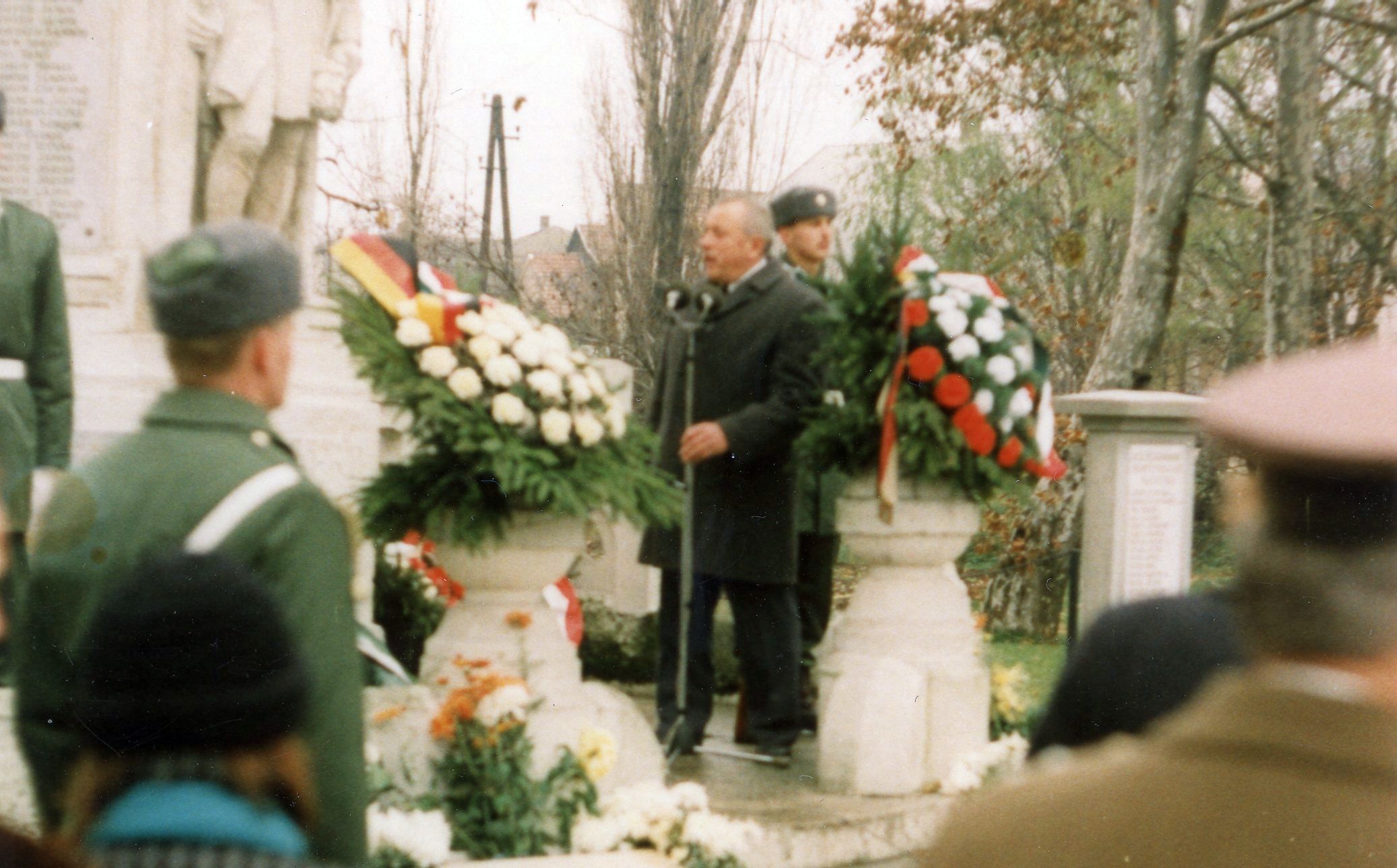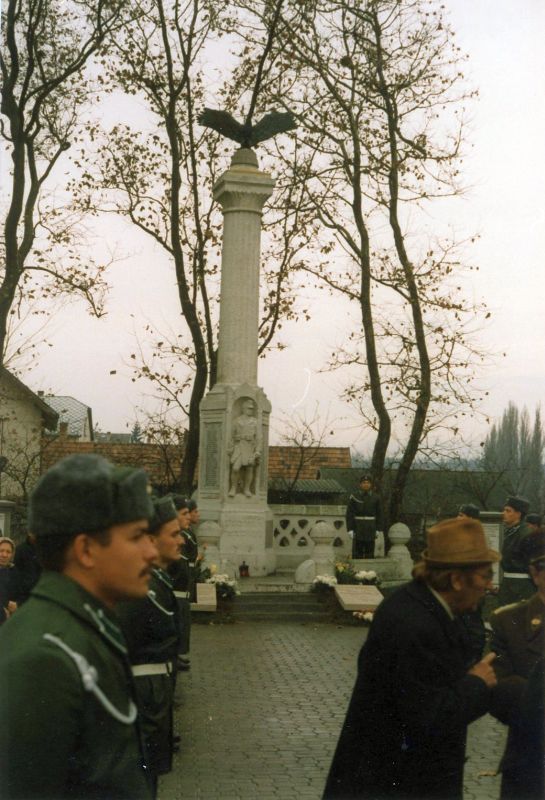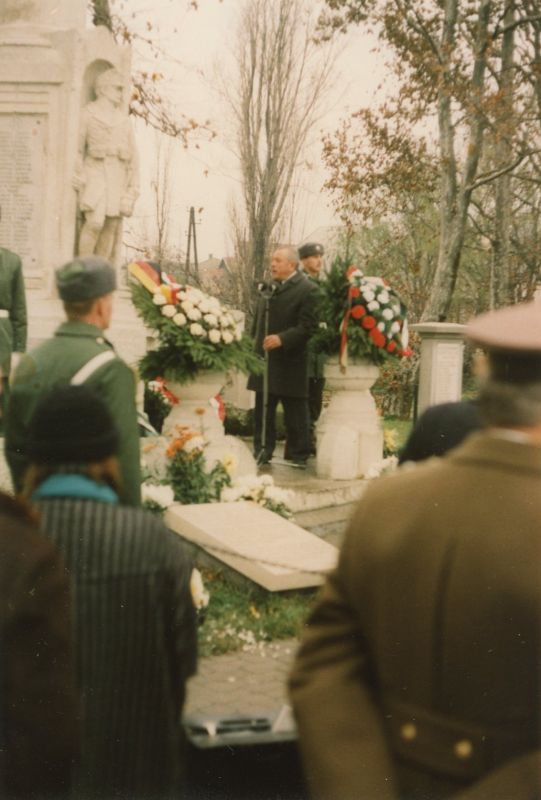Otto von Habsburg is known to have studied the history and fate of Hungarian settlements with great interest. No wonder, then, that more than 60 municipalities have chosen him as their honorary citizen. However, through invitations to various occasions, he visited even more places in Hungary. Due to the historical connections, he would have liked to visit the small village of Mány, the northernmost tip of Fejér County, but the invitation was received late.
Mány was first mentioned in an official charter in 1321, depopulated after the Turkish era, and only re-established in the 1560s. In the middle of the 19th century, as a result of the provisions of Maria Theresa, German nationals settled in Mány, thus, since then the village has a multi-ethnic population. Although 241 inhabitants of German nationality were deported from Mány on 13 April 1946, the inhabitants with the remaining Swabian roots still preserve their traditions to this day.
The Volkstrauertag in Germany has been a day of remembrance for the dead heroes and victims of the Great War since 1919 and has been held two weeks before the first Sunday of Advent since 1952. It was also extended to the victims of World War II in 1952. Due to the ethnic composition of the village, there were not only Hungarian, but also German victims, who died during the first and second world wars.
In Mány on November 18, 1990, a commemoration was organized on this occasion by the local organizations of the Hungarian Democratic Forum (MDF) and the Independent Smallholders’ Party. The event took place at the Heroic Monument in the centre of the village with the participation of nearly 500 people. After the Hungarian and German anthems were performed, the President of the MDF, Zoltán Szabó (1920–2002), greeted the audience and read the messages of those invited, including the Prime Minister József Antall, who could not be present in person. In his solemn speech General Kálmán Kéri declared the commemoration of the Hungarian and German soldiers who died a heroic death in a common battle a “noble gesture” and emphasized that “the deaths of all soldiers who fell in Hungary on either side are the key to the fact that there has not been, and hopefully will not be, a devastating war in Europe ever again.” After the speeches, the Ministry of Defence, the German Embassy in Hungary, members of the Salzburg organization of former soldiers involved in the fighting around the village, and local church and non-governmental organizations placed their wreaths at the monument.
Otto von Habsburg was unable to attend the commemoration due to a late request, but in his reply, he asked the organizer to “greet our compatriots and tell them how happy I am to think of the dead heroes in the spirit of our traditions”. For Otto von Habsburg, who was aware of the importance of the Volkstrauertag while living in Pöcking, Germany, it might have seemed natural that our “traditions” coexist in a multi-ethnic village. In his letter of December 29, 1990, Zoltán Szabó mentions that he himself was surprised “how many people regretted that you could not come, how many people wanted to see, hear, or even touch you and how many people love you in this country”. The former Crown Prince thanked the organizer’s report as well as the photographs taken on the occasion and forwarded to him, which are also published in this article.
Commemoration in Mány, at the Heroic Monument (November 18, 1990)
At the time, the village seemed to create a tradition with the ceremony, which was also supported by Minister of Defence Lajos Für and German Embassy Councillor Josef Aufricht. However, there was no continuation of the initiative. Today, only the Memorial of the Hungarian Heroes, first enacted in 1917, is held in the village on the last Sunday in May, commemorating all those who “shed their blood, risked or sacrificed their lives for Hungary.”
Although the introduction of the Volkstrauertag did not take place, Otto von Habsburg never visited the village and the 2011 census registered only 321 people who declared themselves to be of German nationality, the commemoration ceremony in May has been expressing the common destiny in the sacrifice made for one’s homeland – regardless of nationality.
Anett Nacsa


